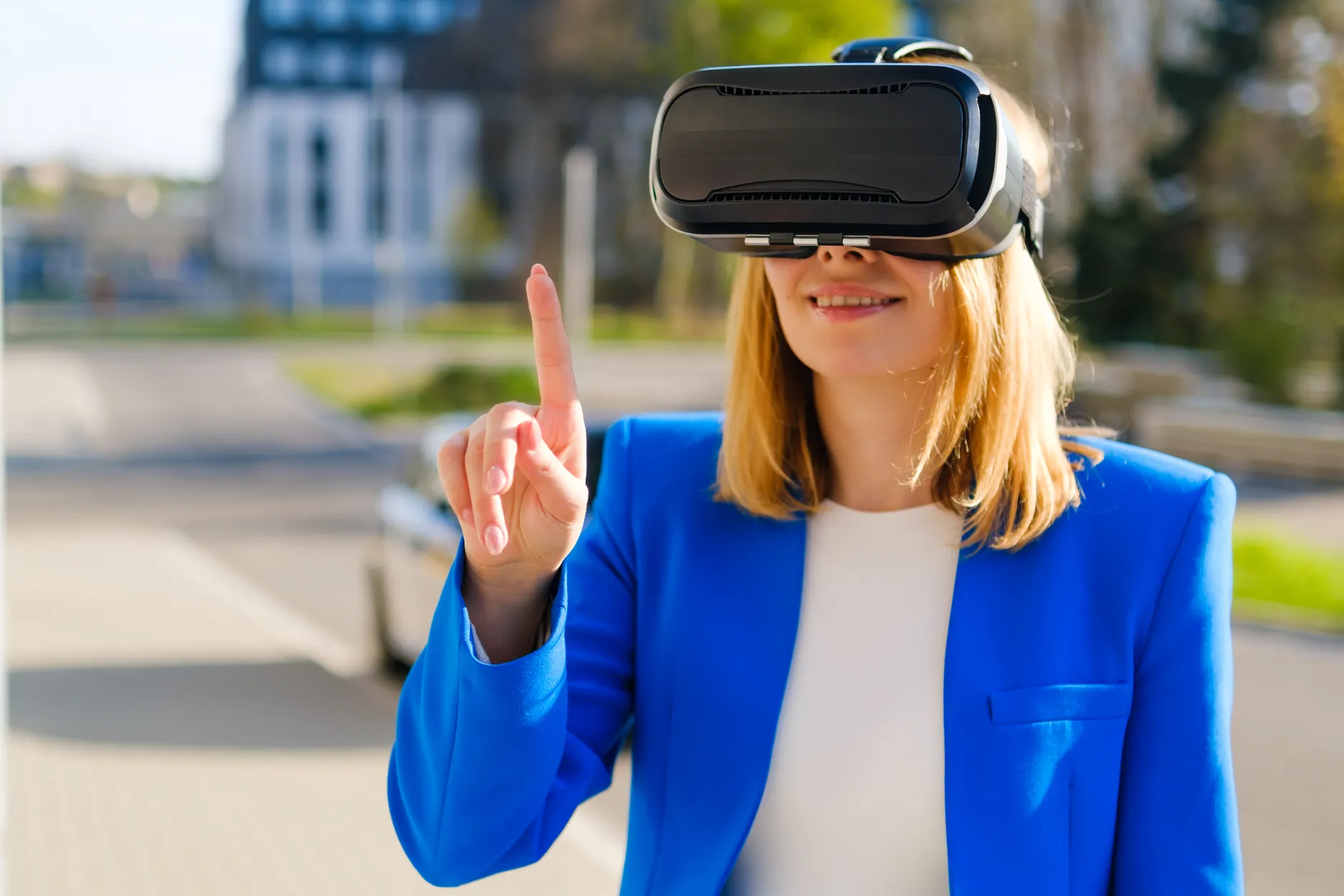
The retail world is currently undergoing a transformative revolution, driven by the convergence of cutting-edge technology and shifting consumer expectations. Amidst this transformation, there's a concept that's taking center stage: Parallel Reality.
Imagine stepping into a store where everything, from the products to the promotions and even the store layout, is customized just for you. In this blog, we'll delve into how parallel reality is reshaping the retail landscape, offering a sneak peek into the future of retail that's both exhilarating and revolutionary.
For decades, the retail industry has primarily operated on a mass-market model. Stores would stock their shelves with a generic selection of products, and shoppers would navigate through these spaces in search of items that aligned with their preferences and needs. While this approach served its purpose, it often left consumers feeling like just another face in the crowd.
Parallel reality flips this script by introducing a complete departure from the one-size-fits-all approach. It harnesses advanced technologies like artificial intelligence, augmented reality, and facial recognition to deliver a highly personalized and immersive shopping experience to each customer.
Before we delve deeper into the future of retail, let's get a quick peek behind the curtains to see how parallel reality functions:
Imagine stepping into a parallel reality store where, from the moment you arrive, the displays and shelves adapt in real-time to showcase products tailored precisely to your tastes and needs. Regardless of whether you're a fashion maven, a tech enthusiast, or a foodie, the store effortlessly adjusts to your individual preferences, making shopping not just convenient but enjoyable.
Traditional shopping can be overwhelming due to the sheer number of products on display. Parallel reality simplifies this by guiding you directly to products that align with your interests. It's akin to having a personal shopper who knows your style inside out.
Parallel reality doesn't stop at static displays. It introduces interactivity into the shopping experience. You can interact with products virtually, try on clothing items through digital mirrors, and receive real-time recommendations based on your preferences. This transforms shopping into an engaging journey of discovery.
The beauty of parallel reality lies in its seamless integration with online shopping platforms. Your personalized shopping experience extends beyond the physical store and seamlessly transitions online. This ensures that your preferences and shopping history are always up to date, whether you're shopping in-store or from your couch.
While parallel reality's impact on retail is already substantial, its potential goes far beyond personalization. Here are some broader implications:
Parallel reality generates a wealth of data on consumer behavior. Retailers can tap into this data to refine their product offerings, optimize store layouts, and craft more effective marketing strategies. The insights gained from parallel reality empower retailers to make data-driven decisions that benefit both them and their customers.
As customers experience the convenience and personalization of parallel reality, they're more likely to develop a sense of loyalty to brands and stores that provide this cutting-edge shopping experience. The connection between a retailer and a customer deepens when the customer feels genuinely understood and catered to.
Parallel reality can lead to more efficient inventory management. With products tailored to individual preferences, there's a reduced risk of unsold items languishing on store shelves, contributing to a more sustainable retail ecosystem. This not only benefits retailers by minimizing waste but also aligns with the growing consumer demand for environmentally responsible practices.

While retail is at the forefront of parallel reality adoption, the concept has far-reaching applications across various industries:
Parallel reality can revolutionize theme parks, concerts, and other entertainment venues by tailoring experiences to individual preferences. Imagine attending a music festival where the stage effects, soundtracks, and even the order of performances are customized based on your musical taste.
Tourists exploring a new city could benefit from a parallel reality, which offers personalized information about historical sites, local cuisine, and cultural events based on their interests and previous travel experiences.
In healthcare, parallel reality can assist doctors and patients in visualizing medical data and treatment plans in a personalized manner, making complex information more accessible and understandable.
Parallel reality has the potential to transform education by providing students with personalized learning materials and interactive experiences tailored to their individual learning styles and strengths.
As we conclude this journey through the realm of Immersive 3D and its profound impact on the retail landscape, we invite you to step boldly into the future. Embrace the power of Twinn Vision, where the fusion of technology and design crafts an experience that transcends the ordinary and paves the way for a more immersive, intuitive, and inspiring world.
The future of retail revolves around crafting unique and personalized experiences for each customer. Parallel reality isn't just a concept; it's a tangible reality that's already changing the way we interact with physical spaces and engage with brands. As this technology continues to evolve and extend its reach, we can expect more retailers to embrace parallel reality, providing customers with shopping experiences that truly stand out in the crowd.
FAQs
No, Parallel Reality extends beyond retail. It can enhance entertainment, tourism, healthcare, and education, offering personalized experiences in various industries.
Parallel Reality benefits retailers by increasing customer engagement, providing valuable data insights, and boosting customer loyalty through personalized experiences.
Parallel Reality in retail is a cutting-edge technology that tailors the shopping experience to each individual. It uses facial recognition and AI to create personalized content, making every shopper's visit unique.